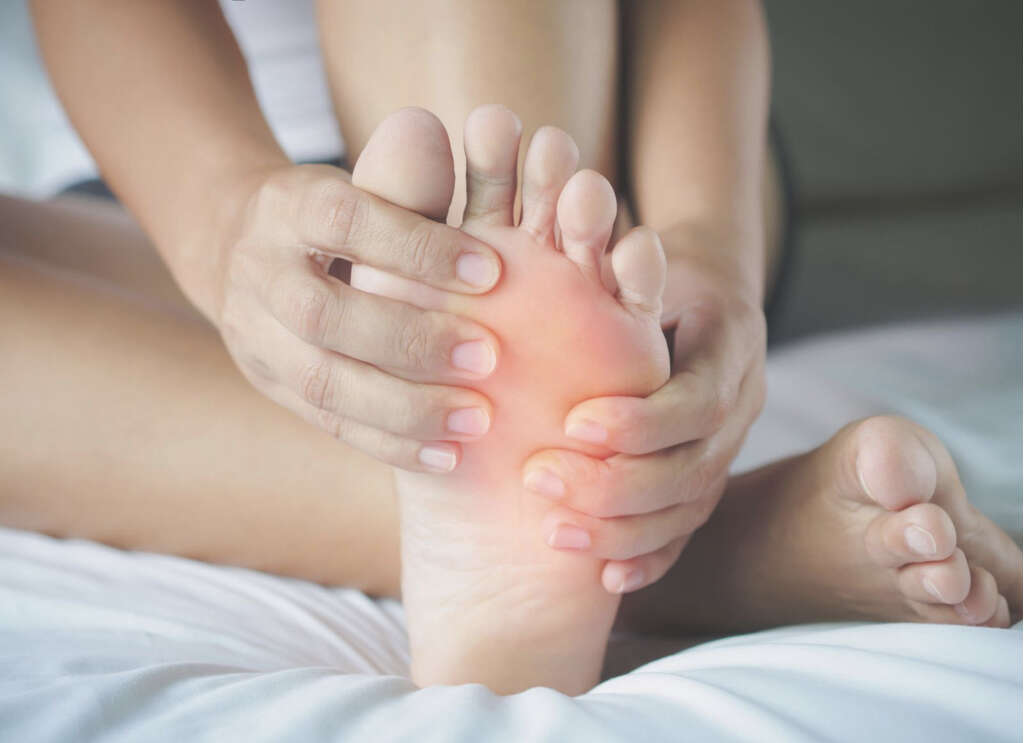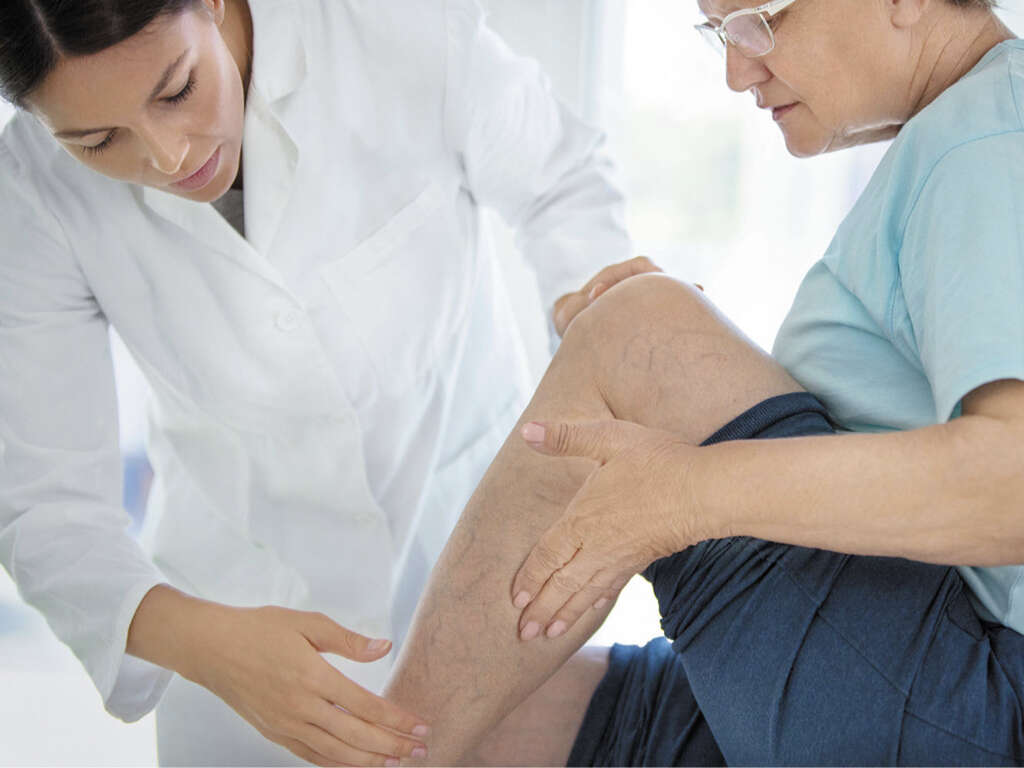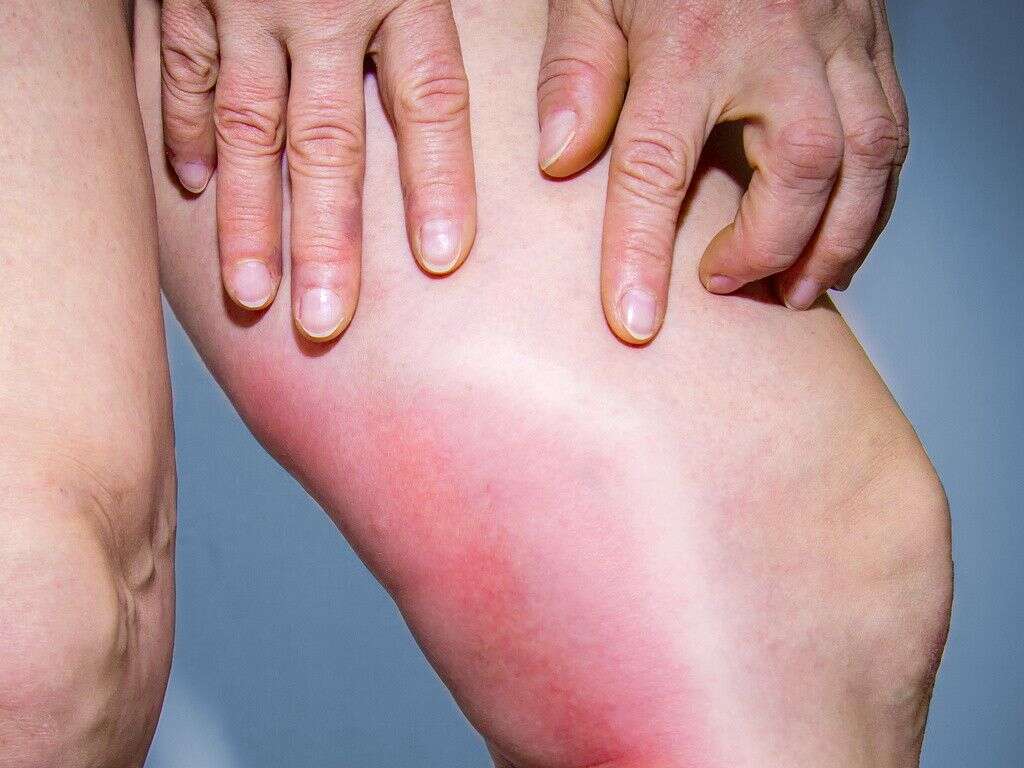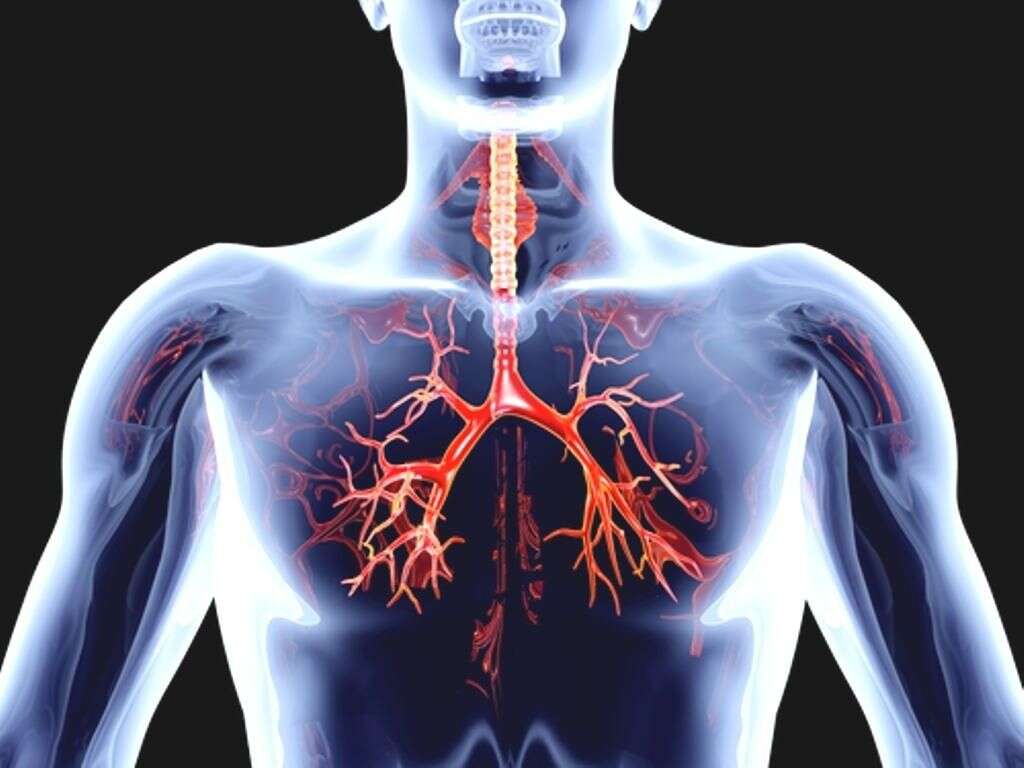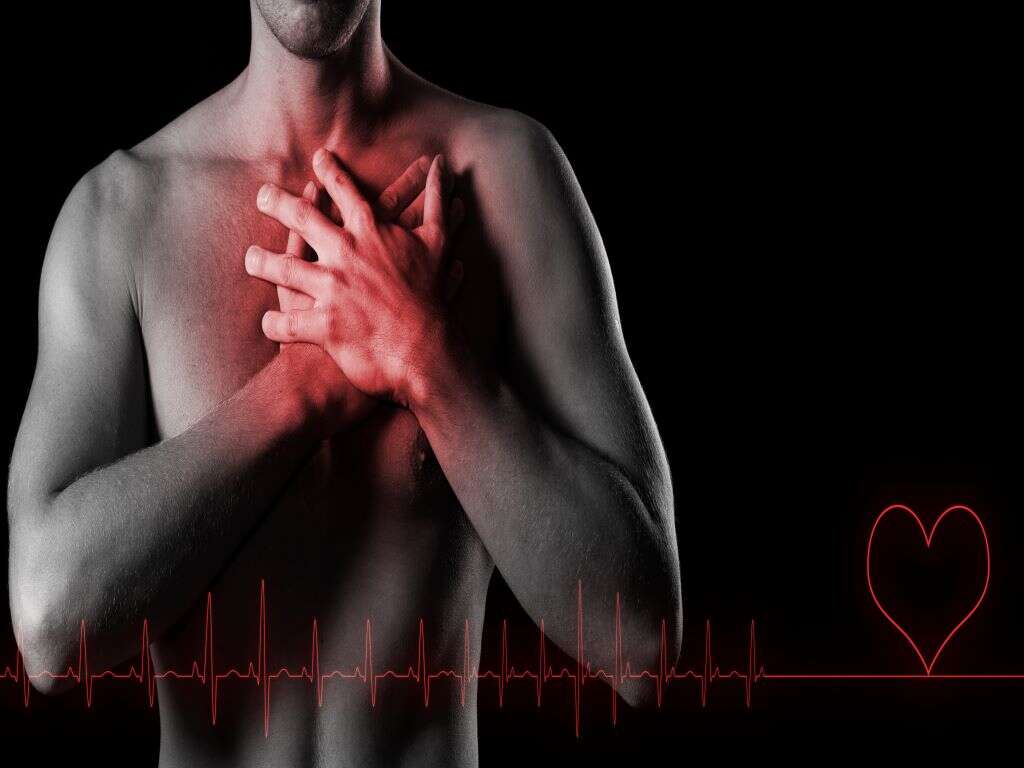10 Blood Clot In Foot Symptoms
A blood clot in the foot can become a serious issue. A blood clot, or thrombus, occurs when the blood coagulates as part of the hemostasis process. There are two main parts that make up the blood clot: the plug that has been formed by a collection of red blood cells and aggregation of platelets. Lastly, a mesh of cross-linked fibrin proteins holds the clot together.
In normal healthy individuals, a blood clot happens when there is an injury as the clot helps to stop further bleeding. However, when it occurs in the vessel, it can cause many issues as it stops the flow of blood, which can result in tissue damage or death.
The formation of a blood clot can be due to blood stasis, endothelial injury, or hypercoagulability. It is important to recognize the symptoms of a blood clot as it helps the affected individual to seek medical attention and treatment.
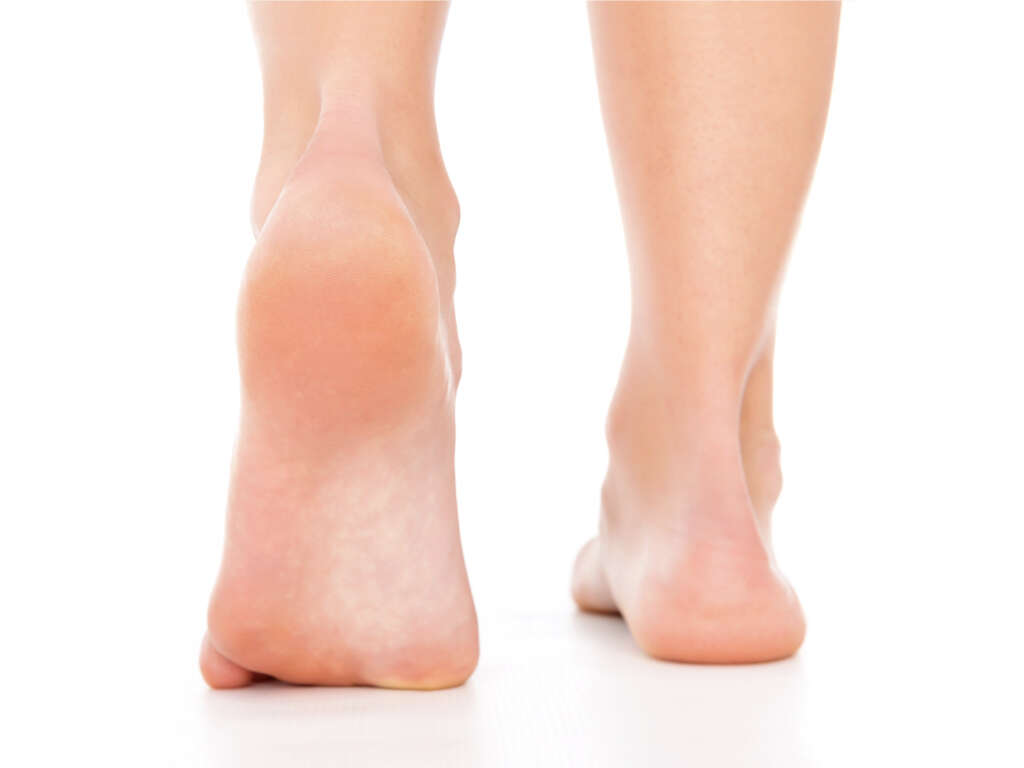
Symptom #1: Firm Veins
Veins are blood vessels that function to carry blood from other parts of the body back to the heart. This means that most veins contain deoxygenated blood, except umbilical and pulmonary veins. Veins are less muscular than arteries, closer to the skin, and have valves that help prevent the backflow of blood.
When the blood clot in the foot occurs in a vein, the distal (further from the heart) portion can appear to be enlarged and feels firm as the clot has created a damlike effect that prevents the flow of blood back to the heart. Depending on the affected vein, some blood can be diverted through other veins to reach the heart.
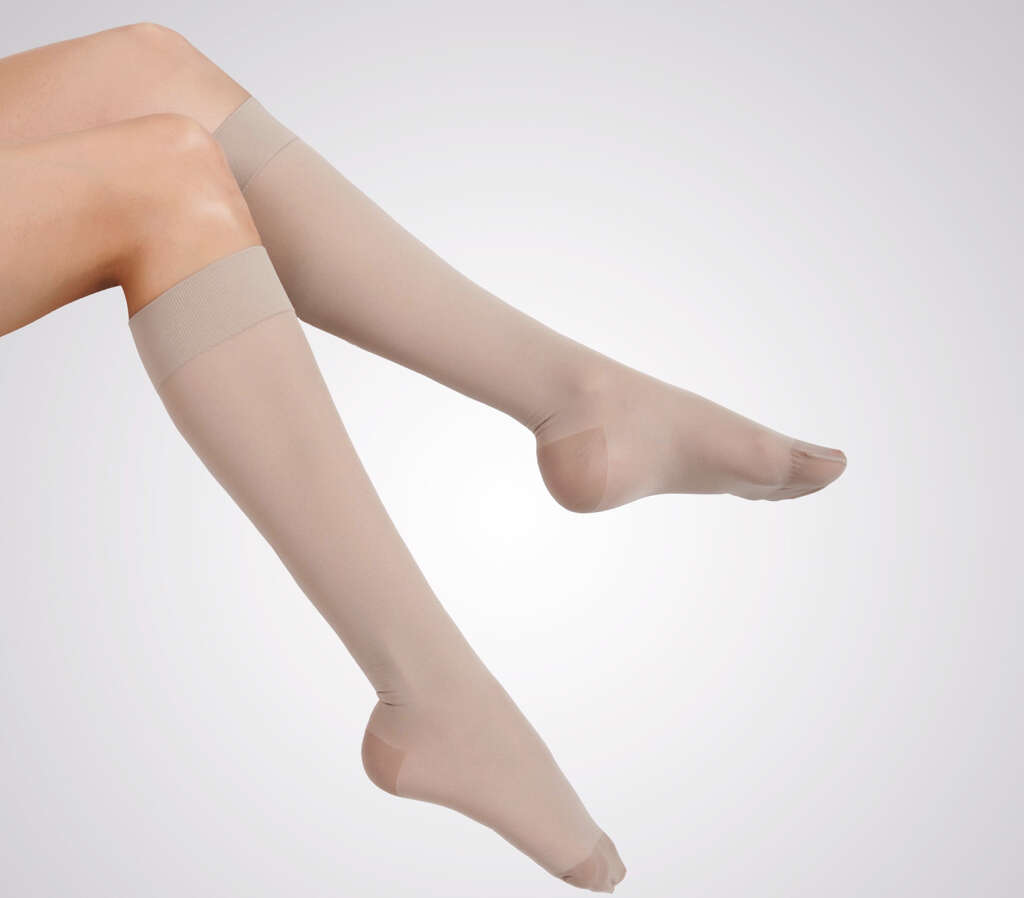
Symptom #2: Muscle Cramp
A cramp occurs when there is an involuntary and sudden over-shortening or contraction of the muscle that results in paralysis-like immobility and pain. Muscle cramps are usually temporary and do not cause any damage. They also tend to resolve on their own within seconds to hours.
Cramps can occur in skeletal muscles or smooth muscles (gastrointestinal). It is usually due to electrolyte imbalances, muscular fatigue, or low oxygenation. When there is a blood clot in the foot, it can cause decreased blood flow and hypoxia to some of the tissues in the foot, leading to muscle cramps.
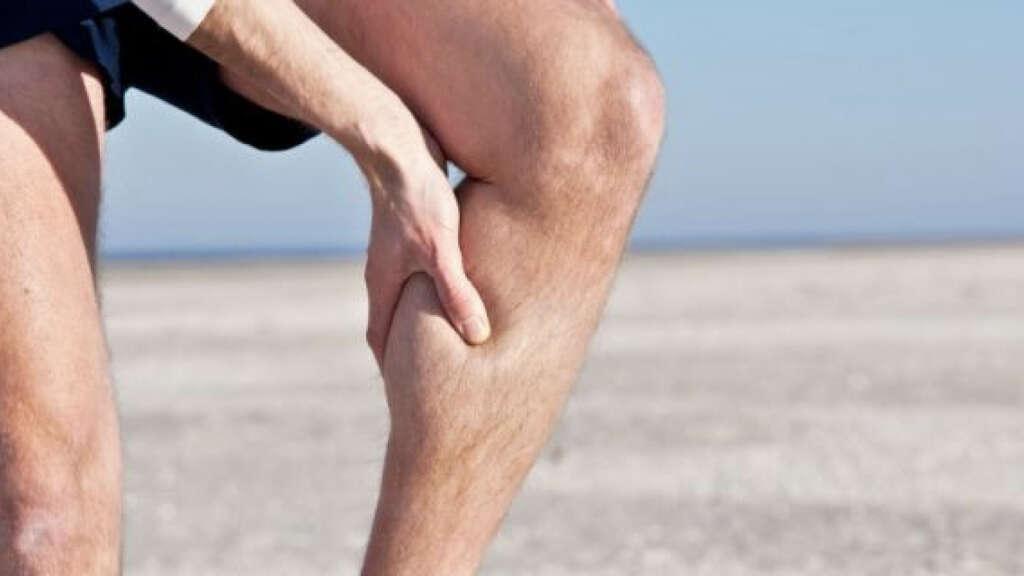
Symptom #3: Paresthesia
Paresthesia is a term describing an unpleasant sensation where there is a numbness, burning, or prickling sensation in the skin without any apparent physical cause. Many refer to the sensation as “pins and needles” or of a limb that has “fallen asleep.”
Paresthesia can be chronic or temporary. It is usually painless and most commonly affects the extremities such as the foot. When there is a blood clot in the foot, it can obstruct the flow of blood to some tissues, causing hypoxia. This impairs the muscle and nerve function in the area the affected blood vessel supplies, resulting in paresthesia.
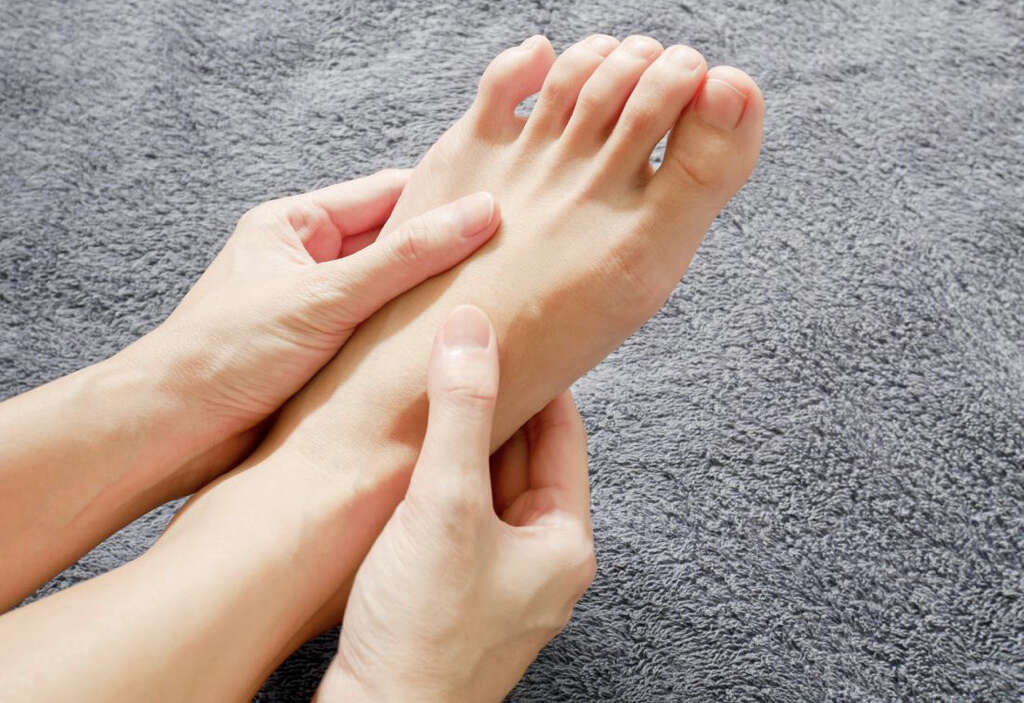
Symptom #4: Dyspnea
Dyspnea, or shortness of breath, occurs when the patient feels that they are unable to breathe well or normally. They may experience the need for more effort to breathe, chest tightness, and air hunger. Most cases of dyspnea are usually related to respiratory or cardiovascular issues such as pneumonia, cardiac ischemia, interstitial lung diseases, asthma, psychogenic causes, and heart failure.
When dyspnea occurs in an individual with a suspected blood clot in the foot (or any other part of the body), it should be considered a medical emergency as it may mean that the blood clot or part of the clot has lodged itself in the lungs (pulmonary embolism). Up to 40% of patients with deep venous thrombosis may have a silent pulmonary embolism, therefore it is important to be aware of the symptoms related to this condition as well to prevent further complications.
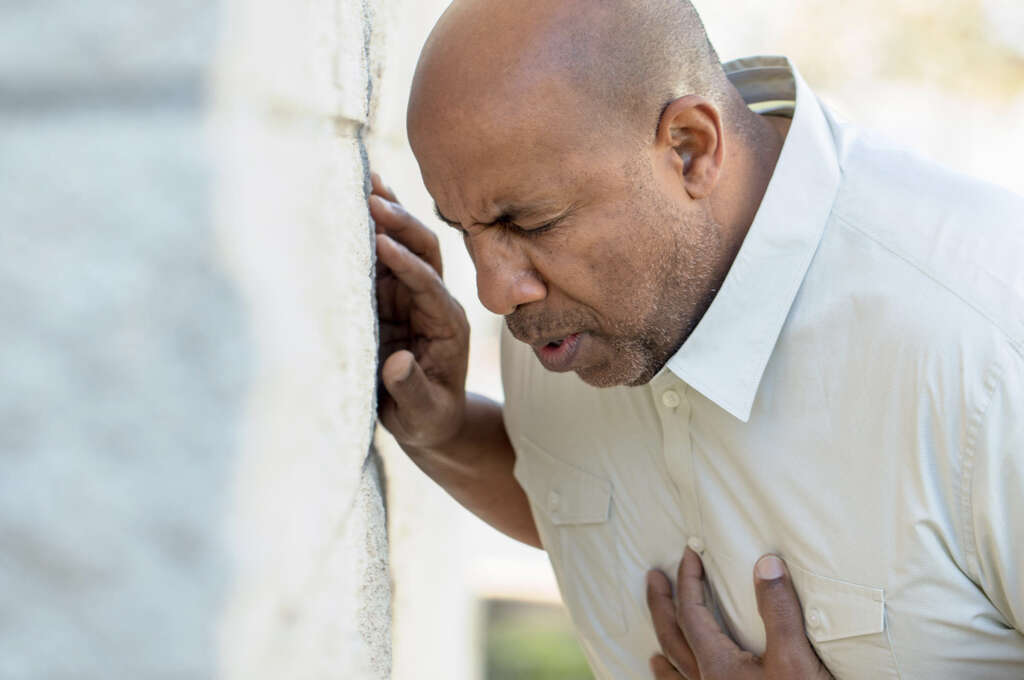
Symptom #5: Bluish Discoloration
A blood clot in the foot can cause an obstruction in the blood flow of the affected blood vessel. If it occurs in the veins, the blood flow cannot flow back toward the heart and starts pooling, resulting in tenderness, pain, swelling, and warmth. The appearance of the affected foot also starts to become dark red.
When the blood clot involves the arteries, the discoloration can appear to be purplish or bluish as the foot is no longer receiving adequate oxygenated blood. This causes the tissue beyond the clot to become pale and cool as there is decreased blood flow to that region.
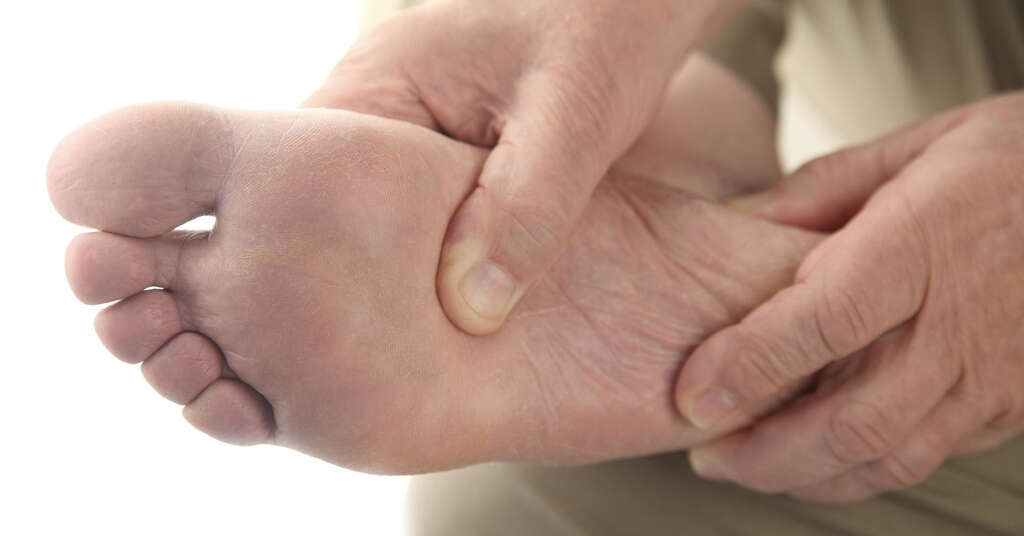
Symptom #6: Warmth
When there is a blood clot, it can result in an inflammation in the affected region. One of the main characteristics of inflammation is warmth. When inflammation occurs, chemicals are released from the surrounding white blood cells of the affected region to try to protect the body and correct the anomaly.
The chemicals being released cause an increased blood flow to the affected region, which results in warmth. To provide symptomatic relief, place cold packs on the affected foot as it can also help reduce pain and swelling.
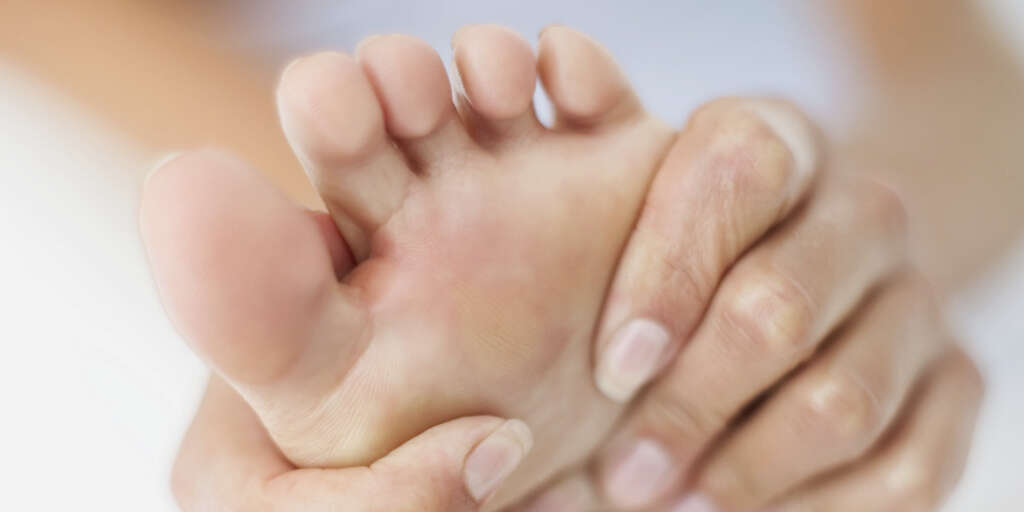
Symptom #7: Localized Tenderness
Tenderness is described as an unpleasant or even painful feeling after a certain area of the body is touched or pressed upon. This is a common finding in patients dealing with deep venous thrombosis, with over half of them reporting this symptom.
The tenderness is usually over the affected area of the leg and it is due to the underlying edema associated with the impaired venous return in the extremity.
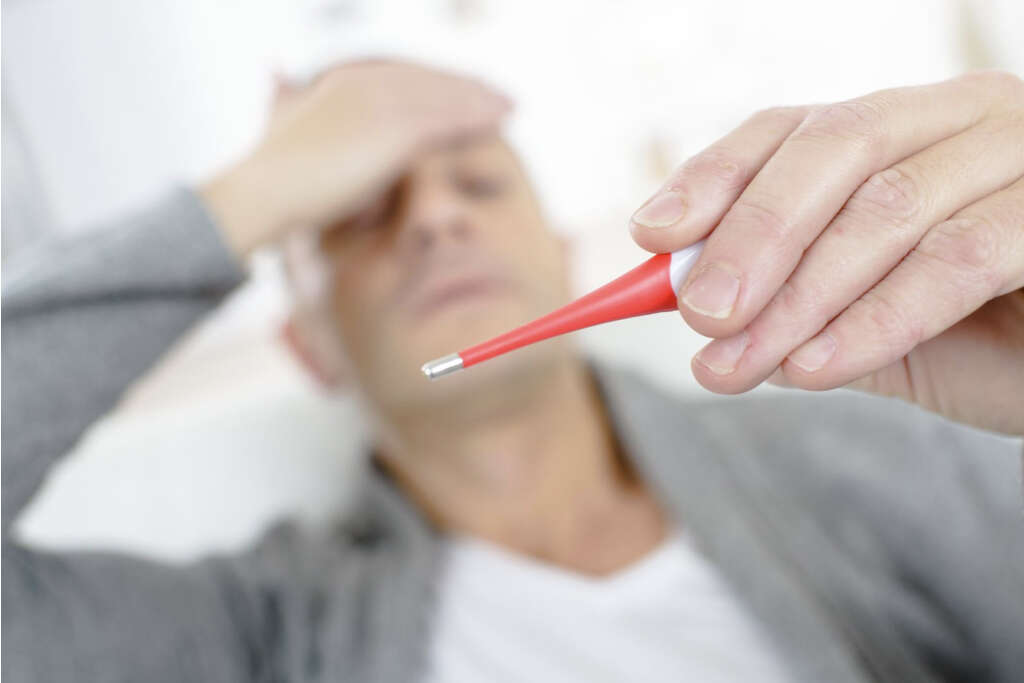
Symptom #8: Redness
A blood clot in the foot can cause inflammation. When this occurs, the surrounding white blood cells in the area release chemicals that increases blood flow to the affected area. The redness in the affected area is due to the dilation of blood vessels.
Redness is one of the hallmarks of inflammation and one of the commonest symptoms seen among patients who have a blood clot. Other associated symptoms include pain, tenderness, loss of function, swelling, and warmth. Redness can reduce if cold packs are applied to the affected region as it helps reduces blood vessel dilation and blood flow.
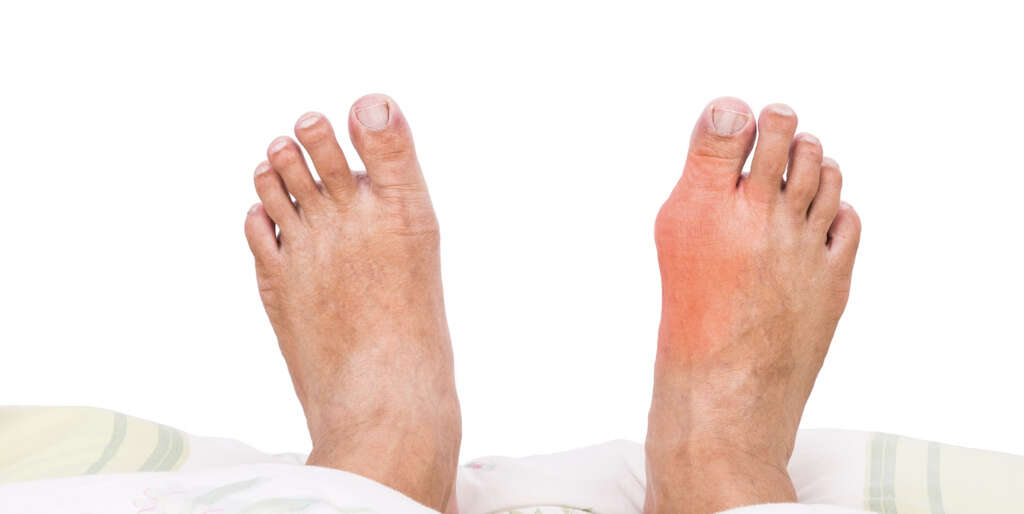
Symptom #9: Pain
Pain is a common symptom seen in various conditions and injuries. It is a distressing feeling that is usually caused by damaging stimuli. It has been defined as an unpleasant emotional and sensory experience where there may be potential tissue damage. Pain is the commonest reason why medical attention is sought. It can be debilitating and greatly affects both functioning and quality of life.
For patients suffering from deep venous thrombosis, the pain is usually in the calf of the affected leg. It usually gets worse during physical activity and it may intensify throughout the day.

Symptom #10: Swelling
Swelling is usually most prominent when the blood clot occurs in the vein as it creates a damlike effect that obstructs the flow of blood back toward the heart. This causes pooling of blood, resulting in swelling and pain.
In some cases, when the vein is completely blocked, smaller veins or collateral veins may become bigger to help bypass the obstruction. These smaller veins are usually more apparent under the skin. Swelling is also one of the main characteristics of inflammation. It is often associated with other symptoms such as pain, tenderness, redness, and warmth.
